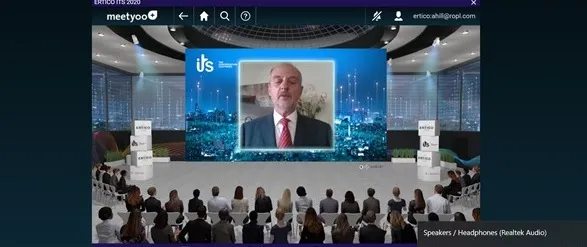
The coronavirus pandemic has changed the way we think about mobility, but it also provides opportunities - that was the welcome message at this morning's opening of the first Virtual ITS European Congress.
"2020 is turning into a dramatically challenging year," said Ertico chairman Dr Angelos Amditis in an online address to delegates.
He added: "We are heading into a new era where everything is questionable. Mobility is navigating into unprecedented times."
While the ITS community had been due to meet this year in Lisbon, Kazan and Los Angeles, virtual events were a way of "trying to blend the digital and physical into one".
"Every crisis creates opportunities and our focus should be on opportunities," Amditis insisted.
Smart mobility has the power to provide a "green, secure and connected ecosystem", he concluded.
Matthew Baldwin, deputy director general at the European Commission, echoed those remarks, saying that the EC appreciated "what the whole ITS community is going to advance smart sustainable mobility".
Digitalisation, electrification, automation and data sharing were going to be very important in future, and Baldwin said the EC is "counting on the ITS industry" to support the "collective resolve to rethink and update mobility and transport systems".










